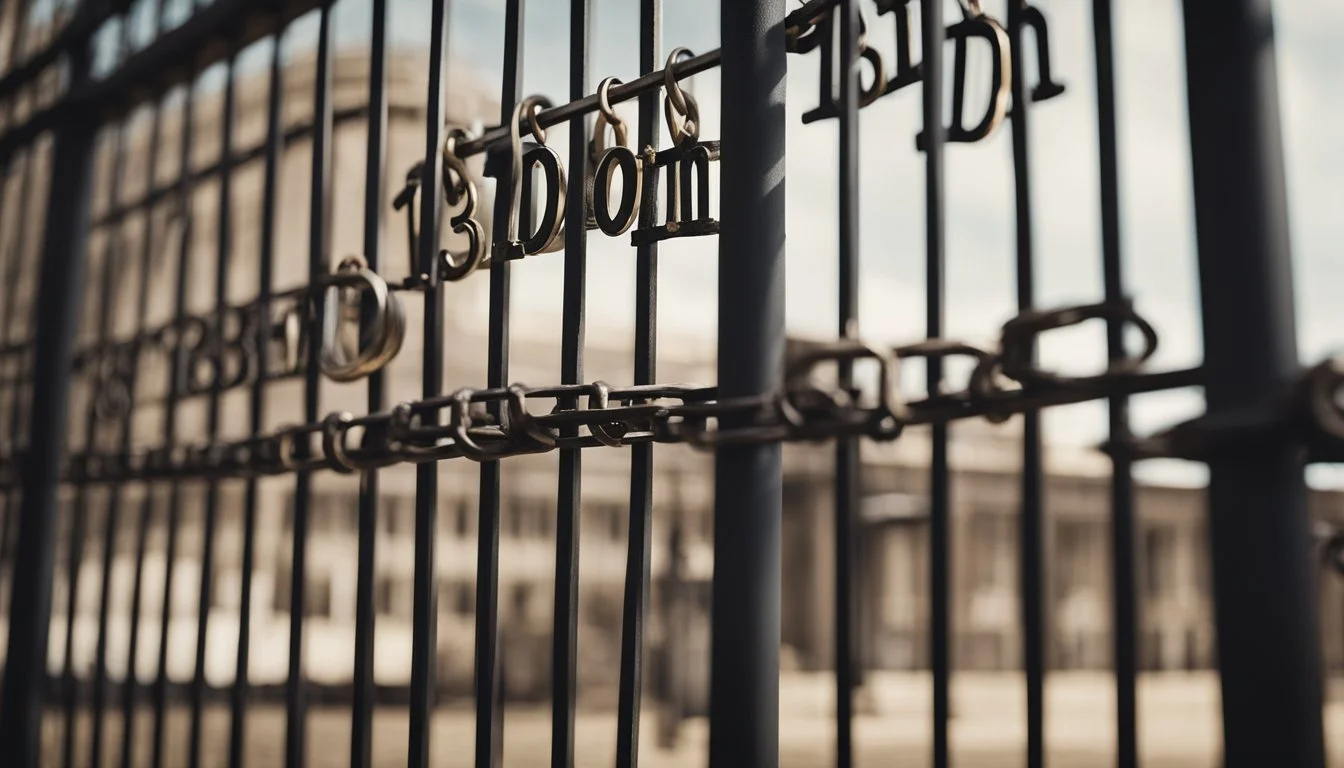13th (2016) Review
Unveiling America's Racial Injustice System
The documentary film "13th," directed by Ava DuVernay, is a thought-provoking and eye-opening exploration of the intersection between race, justice, and mass incarceration in the United States. The title itself refers to the Thirteenth Amendment of the U.S. Constitution, which abolished slavery and involuntary servitude, except as punishment for a crime. Through a compilation of archival footage and interviews with activists, scholars, and politicians, the film argues that the 13th Amendment has facilitated a new form of oppression and racial inequality.
Delving deep into America's history, "13th" exposes the racial bias that has systematically pervaded the American criminal justice system since the end of the Civil War. It illustrates how various events and legislative actions, such as the "war on drugs" and the "tough on crime" policies, have disproportionately targeted and impacted African Americans. This has led to a drastic increase in the prison population, as well as the widespread disenfranchisement of many African American citizens.
By examining and presenting the historical and current racial disparities within the criminal justice system, DuVernay's "13th" challenges the viewer to question and reconsider the deeply ingrained social and political narratives that have shaped the United States. The documentary serves as a powerful call to action and a reminder of the ongoing struggle for racial equity and justice.
Historical Context
Mass Incarceration
Mass incarceration in the United States refers to the rapid expansion of the prison population beginning in the 1970s. This expansion was primarily driven by policy decisions, including the War on Drugs and mandatory minimum sentencing laws. The number of people imprisoned has increased dramatically, with nearly 2.3 million people incarcerated as of 2021. The effects of mass incarceration have been profound, often disproportionately impacting minority communities, particularly African Americans and Latinos.
In the documentary 13th, the connection between the 13th Amendment and mass incarceration is explored. It is argued that the criminalization of certain behaviors, particularly those associated with drugs and drug use, has effectively become a new form of slavery and racial control.
Jim Crow Laws
The Jim Crow era was a period in American history characterized by the implementation of racial segregation laws, primarily in the Southern states. These laws were designed to uphold white supremacy by controlling and oppressing African American communities. They regulated various aspects of life, including access to public facilities, public transportation, and voting rights.
The documentary 13th argues that Jim Crow laws have evolved into modern forms of control, such as mass incarceration and race-related policies. The film aims to demonstrate how the legacy of racial oppression continues to shape the social, economic, and political experiences of African Americans today.
Film Analysis
Notable Interviews
The documentary 13th features interviews with several notable figures from various fields. These individuals offer a wealth of knowledge and insight into the topics covered in the film. Some of these notable interviewees include:
Michelle Alexander, author of "The New Jim Crow"
Van Jones, CNN political commentator and co-founder of Cut50
Bryan Stevenson, public interest lawyer and founder of the Equal Justice Initiative
Each of these interviewees contributes valuable thoughts and observations on the issues surrounding mass incarceration and its relation to the 13th amendment.
Visuals
In 13th, the filmmakers employ striking visuals to support the information conveyed in the interviews. These visuals include historical footage and photographs, news clips, and creative animations to communicate timelines, statistics, and key concepts.
For instance, one of the most memorable moments in the film shows the rapid growth of the U.S. prison population over time through a dynamic animated sequence. This visual representation effectively demonstrates the magnitude of the subject matter, illustrating the increase of incarcerated individuals in the United States from the 1970s to present day.
Music
Music plays a crucial role in setting the tone and pacing of 13th. The documentary incorporates a mix of original compositions as well as well-known songs that complement the themes and topics discussed in the film. This approach successfully enhances the impact and emotional engagement of the documentary's narrative.
Some of the notable songs featured in 13th include:
"Don't Believe The Hype" by Public Enemy
"Feeling Good" by Nina Simone
"The Revolution Will Not Be Televised" by Gil Scott-Heron
These songs, among others, contribute to the documentary's powerful message by highlighting key ideas and prompting reflection on the complex history of race and incarceration in the United States.
Key Arguments
The documentary 13th, directed by Ava DuVernay, examines the intersection of race, justice, and mass incarceration in the United States. The film presents several key arguments to support its main thesis:
13th Amendment Loophole: The 13th Amendment, which abolished slavery, has a critical loophole. This loophole allows for the continued exploitation of the African American population through the inclusion of the clause "except as a punishment for crime." As a result, the criminal justice system replaced slavery as a means of controlling and oppressing African Americans.
Mass Incarceration: The film argues that the United States' history of mass incarceration is linked to racial inequality. This is evident in the exponential increase of the prison population since the 1970s, in which the outsize representation of African Americans is a common theme.
War on Drugs: DuVernay suggests that the War on Drugs, initiated in the 1980s under President Ronald Reagan, disproportionately targeted African Americans. This led to a steep rise in the number of black individuals incarcerated for nonviolent drug offenses, further exacerbating systemic racial inequalities.
Profit-driven Private Prisons: The documentary highlights how the private prison industry profits from mass incarceration, creating a financial incentive to maintain and expand the prison population. This results in a perpetuation of the racial disparities within the criminal justice system.
Influence of Media and Political Rhetoric: The film discusses how media portrayals of African Americans and the rhetoric employed by politicians have reinforced negative stereotypes. These stereotypes contribute to the public's perception of black people as inherently dangerous or criminal, leading to support for harsher sentencing and more aggressive policing tactics.
Voter Suppression: Finally, the film contends that mass incarceration has played a role in voter suppression, as many states disenfranchise individuals with criminal records. This disproportionately impacts African Americans and contributes to their underrepresentation in the political sphere.
Legislation and Policies
War on Drugs
The War on Drugs began in the 1970s under President Nixon's administration. It was a government initiative aimed at combating the production, distribution, and consumption of illicit drugs. This policy led to a significant increase in incarceration rates for drug-related offenses. In the documentary 13th, it is highlighted that this policy disproportionately affected minority communities, particularly African Americans and Hispanics.
Three-Strikes Law
The Three-Strikes Law was introduced in the 1990s and mandated life imprisonment without parole for individuals convicted of three or more serious criminal offenses. This legislation was designed to target repeat offenders and deter crime. However, as shown in the documentary, it has resulted in a dramatic rise in the prison population, with many non-violent criminals serving lengthy sentences.
Private Prisons
The documentary 13th also focuses on the rise of private prisons in the United States. These facilities, operated by private corporations, have been widely criticized for profiting from mass incarceration. The film argues that the growth of the private prison industry has been fueled by the policies mentioned above and points out that corporate interests continue to play a role in shaping criminal justice policies. Additionally, private prisons often lack adequate oversight and accountability, leading to questionable practices and treatment of inmates.
Public Reactions
The documentary "13th" directed by Ava DuVernay garnered significant attention from the public. Many viewers appreciated the film's exploration of the intersection between race and the criminal justice system in the United States, while others felt it presented a one-sided perspective on the matter.
A considerable number of audience members found the documentary to be eye-opening, highlighting important issues related to mass incarceration, such as the privatization of prisons and the political strategies utilized to target minority populations. Social media platforms, like Twitter and Facebook, saw an influx of discussions and debates about the topics raised in the film. Some people even held movie nights and community screenings to promote conversation and awareness within their neighborhoods.
Some critics, however, argued that "13th" biasedly portrayed the criminal justice system in a negative light, stating that the film ignored instances of crime reduction and potentially necessary measures taken by law enforcement. A few commentators accused the documentary of cherry-picking statistics and historical events to advance its narrative. Despite these criticisms, the film's impact on public discourse was undeniable.
The educational community also took note of "13th" as teachers and professors around the country started incorporating the documentary into their curriculum. They used the film as a means to engage their students in conversations about race, civil rights, and criminal justice. Additionally, legal professionals and activists often referenced the film to illustrate systemic issues within the justice system.
In summary, "13th" generated a wide range of reactions from the public. The documentary succeeded in igniting important discussions about the complex relationship between race and the criminal justice system in the United States, despite some criticisms regarding its perceived biased stance.
Impact on Society
The documentary 13th has had a significant impact on society since its release, sparking important conversations and raising awareness about the racial disparities in the United States criminal justice system. The film helped to educate people on the connections between the 13th Amendment, mass incarceration, and racial inequality.
As a result of the documentary, many viewers gained a new perspective on the role that government policies and the private prison industry play in perpetuating a system of mass incarceration. The film effectively demonstrates how the prison population in the United States has grown exponentially since the 1970s, disproportionately affecting communities of color.
Furthermore, 13th has inspired individuals and organizations to advocate for criminal justice reform. By highlighting the systemic issues within the justice system, the documentary encourages viewers to question their own assumptions and challenge policies that perpetuate inequality. It has also prompted discussions around the need for voting rights reform and increased support for grassroots movements focused on decarceration and restorative justice.
Lastly, the film has had an impact on the entertainment industry itself. It won numerous awards, including a Primetime Emmy, and received critical acclaim for its poignant storytelling and compelling use of archival footage. Its success has opened doors for more documentaries that examine important social and political issues, amplifying the voices of marginalized communities and sparking further conversations.
Conclusion
The documentary 13th offers a comprehensive and insightful exploration into the complex relationship between race, law, and mass incarceration in the United States. Through historical analysis and interviews with experts, the film reveals the devastating effects that discriminatory policies have had on African American communities and society as a whole.
The documentary compels viewers to examine the underlying factors that contribute to the disproportionately high rates of incarceration among African Americans. These factors include the legacy of slavery, systemic racism, and economic exploitation, which have persisted throughout history and continue to affect present-day policies and legislation, such as the War on Drugs and mandatory minimum sentencing.
By highlighting the pervasive and enduring impact of these factors, the film encourages a deeper understanding of the challenges faced by those who are working tirelessly to reform the criminal justice system. It also underscores the importance of public awareness and engagement in order to bring about meaningful change.
In conclusion, 13th is an essential documentary for anyone interested in understanding the systemic issues that have shaped the United States' criminal justice system and the urgent need for reform. It provides a valuable starting point for those who wish to engage in thoughtful conversations and actions in the pursuit of justice and equality for all.





